
I grew up with Italian-born grandparents, so let's just say I know a thing or two about pasta. It's a beautiful, versatile food. Most people grow up eating pasta out of a box, and most of the time, my family was no exception. But on holidays and special occasions, we'd be treated to something that my grandmother put some extra time and heart into: fresh pasta.
When I was really little, I remember thinking that making pasta from scratch was the coolest thing ever. And although I grew up learning and loving cooking, I never actually attempted pasta-making myself. I felt it couldn't possibly live up to my childhood memories, and it seemed like a lot of work. But finally, at the age of 18, I decided to give it a shot. Of course, the fresh pasta was for a boy, and of course, I was absolutely miserable trying to pull it off. I hand-rolled and hand-cut piece after piece of pasta until I decided I never wanted to eat it ever again.
You might have hazarded a guess that it wasn't my last time eating pasta, and you'd be correct. It was, however, my last time making it… until now.
I can't say for sure why I was drawn back into what was once a seriously disheartening experience. A lot of it probably had to do with the fact that I recently discovered that pasta-making tools exist and that I could maybe cut just that one corner in my quest for some delicious, fresh carb-y goodness. It also might have to do with the fact that every time I even casually look into making pasta, it's touted as the easiest and most delicious thing that no one ever takes the time to make themselves.
So it was with a bit of bravery and a whole lot of confidence in what strangers online have to say that I decided to have another go at making my own pasta — and here's how it went.
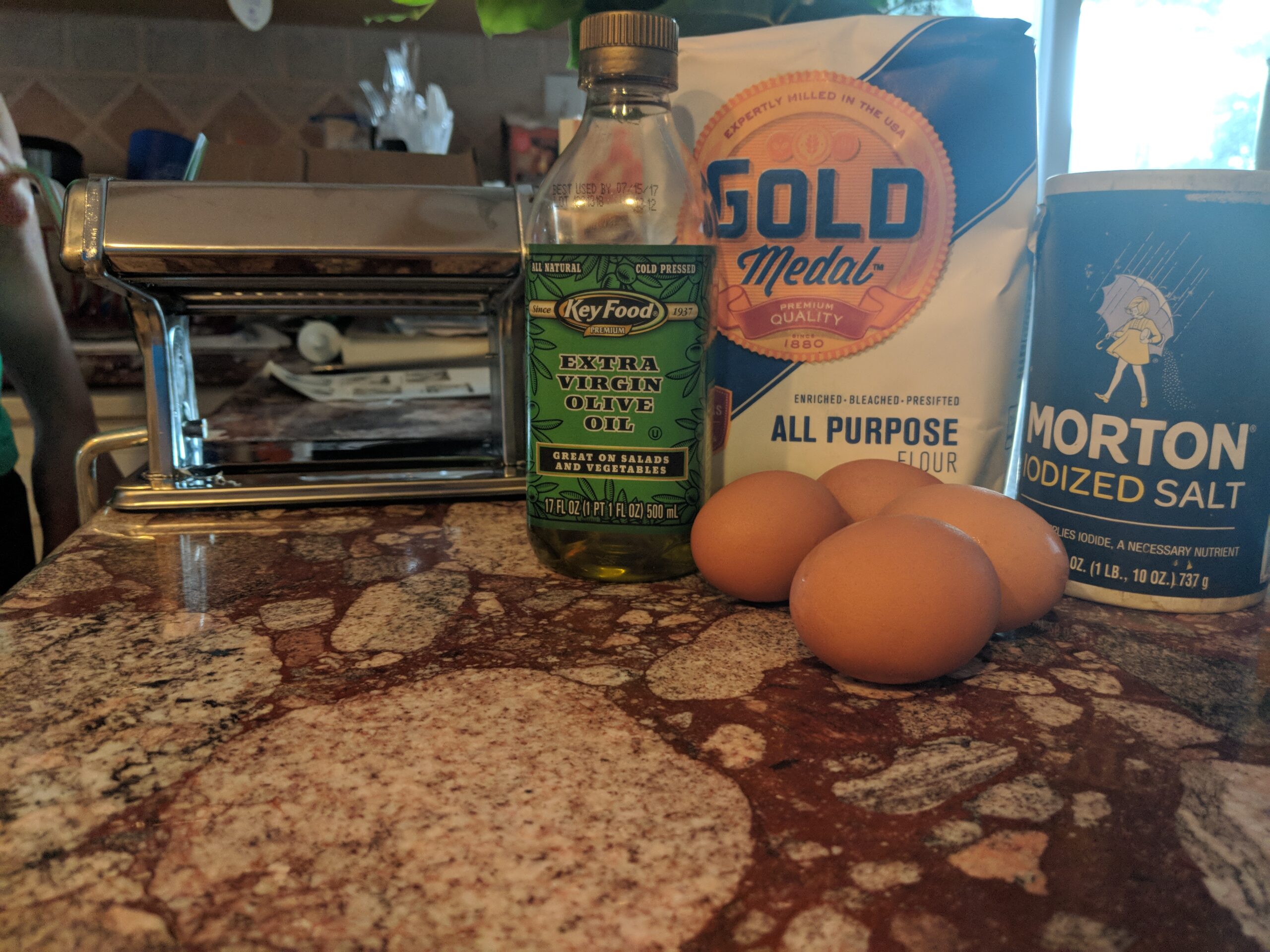
The great thing about making fresh pasta is that, if you're up for the challenge, you probably already have all the ingredients in your house. Standard pasta dough has a really basic recipe, easily found by searching online.
Here's what I used:
- 3 1/2 cups all-purpose flour
- 1 tbsp. salt
- 4 eggs
- 1 tbsp. olive oil
- 4 to 6 tbsps. water
I also used a pasta maker to avoid my previous traumas. But if you’re really ambitious and want to hand-roll and cut, more power to you.
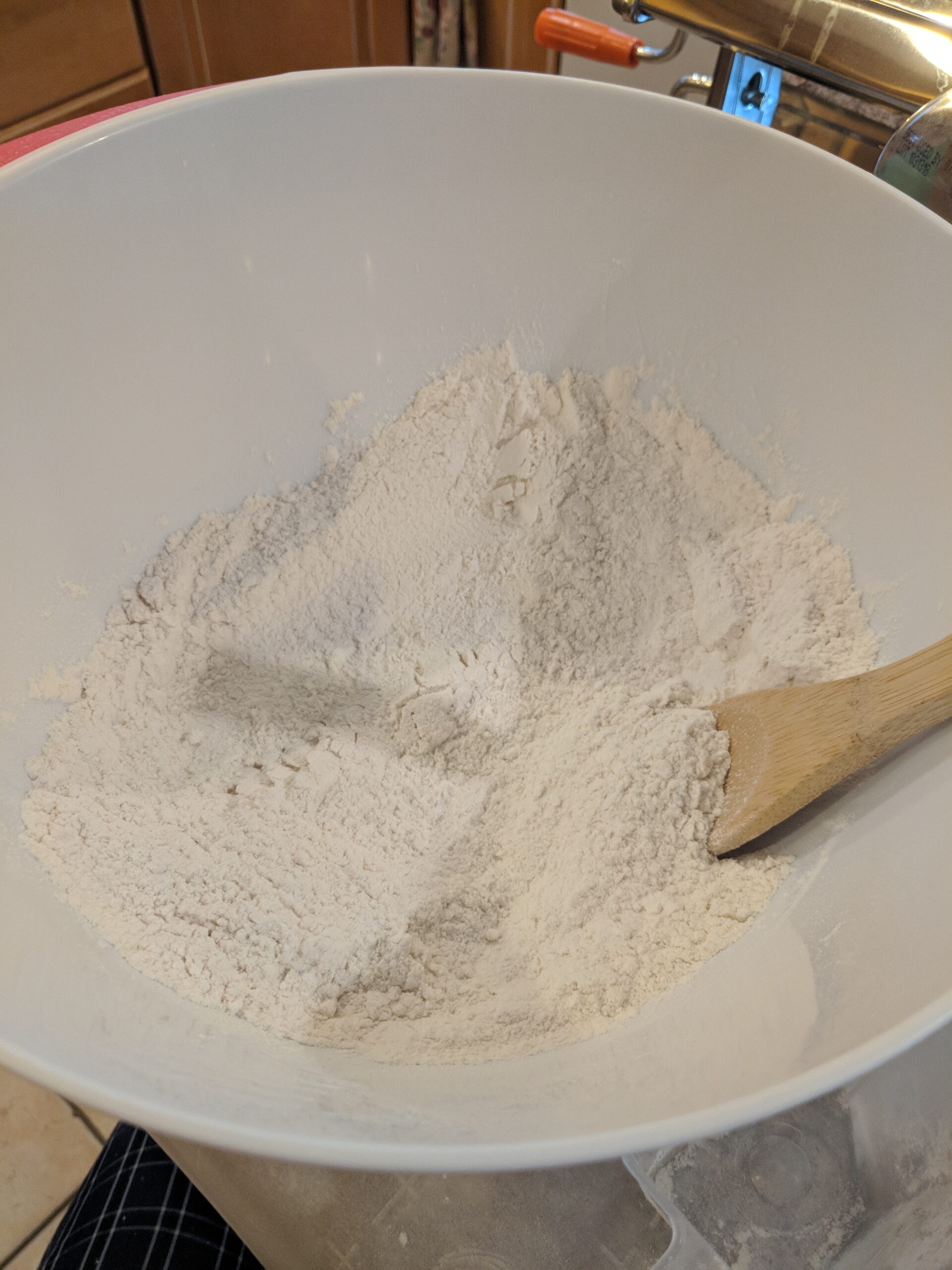
First, you have to mix the flour and salt together until well-blended.
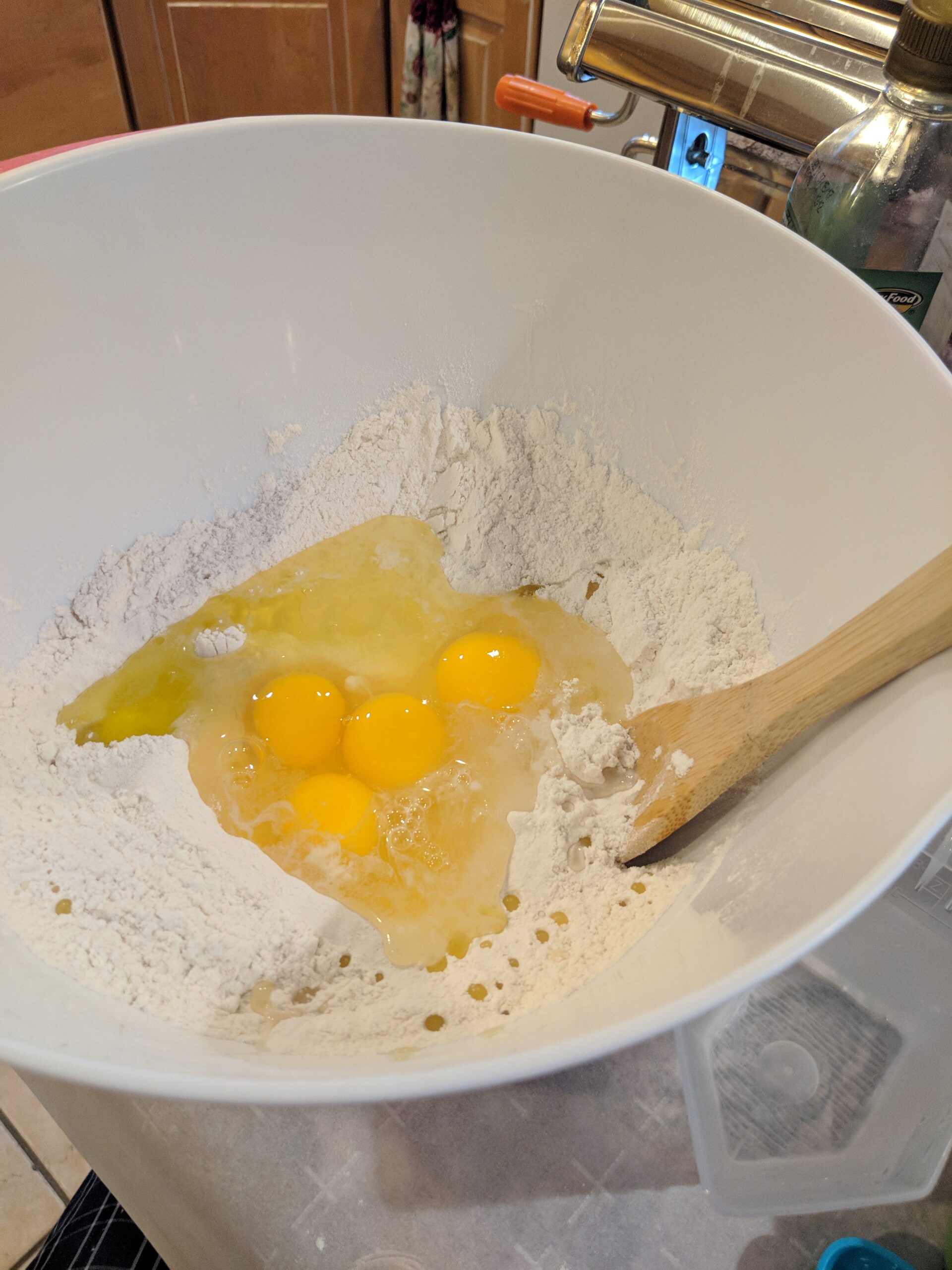
Next, add the eggs, olive oil, and half of the water.

You'll want to start mixing slowly. Once you get to the point where you're starting to form a ball, you'll realize that continuing to use a spoon is futile.
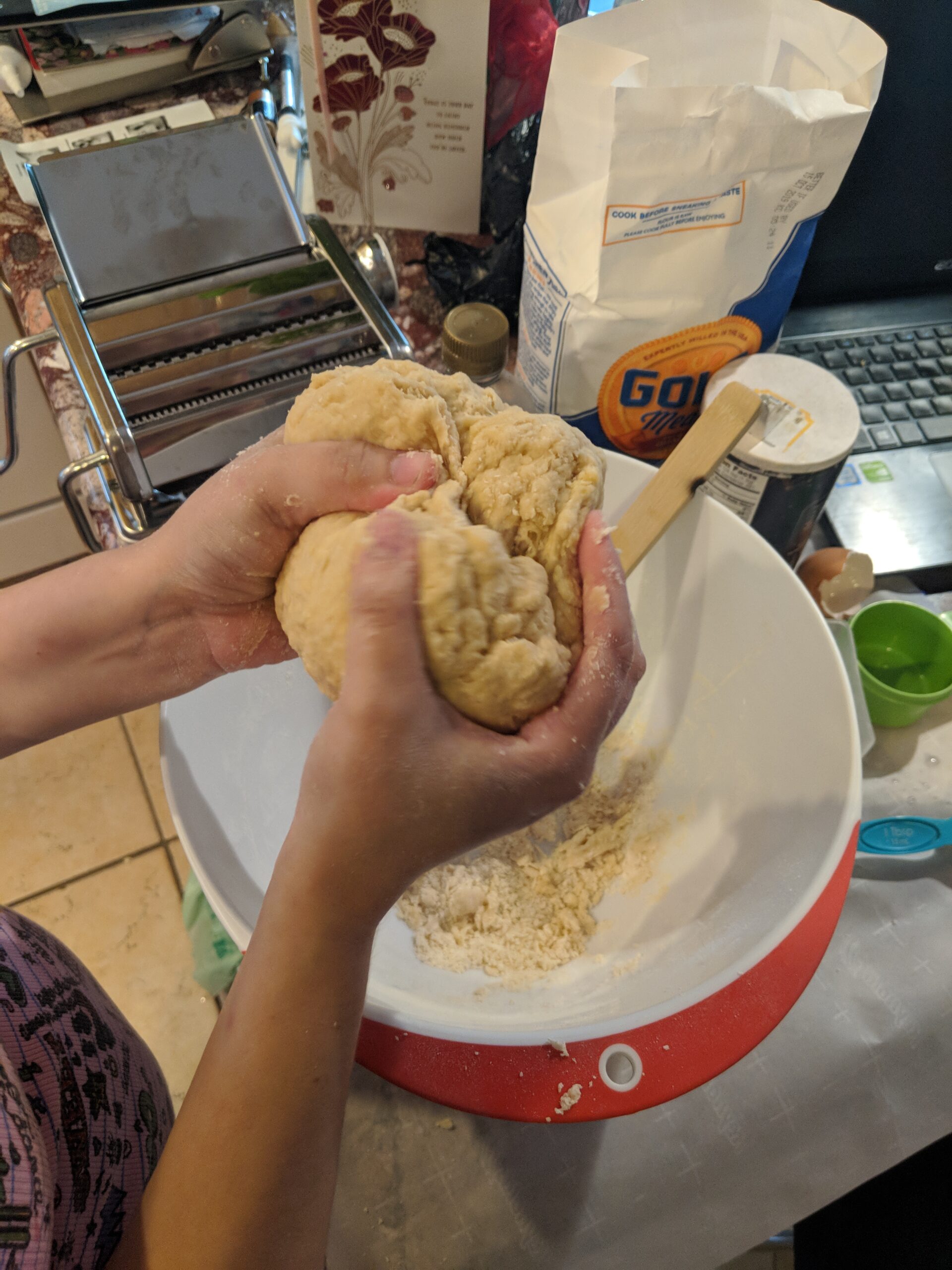
That's when you have to take matters into your own hands — literally. Pick up that dough and knead the heck out of it.
Make sure to get every bit of moisture you can off the spoon and the edges of the bowl and work them in.
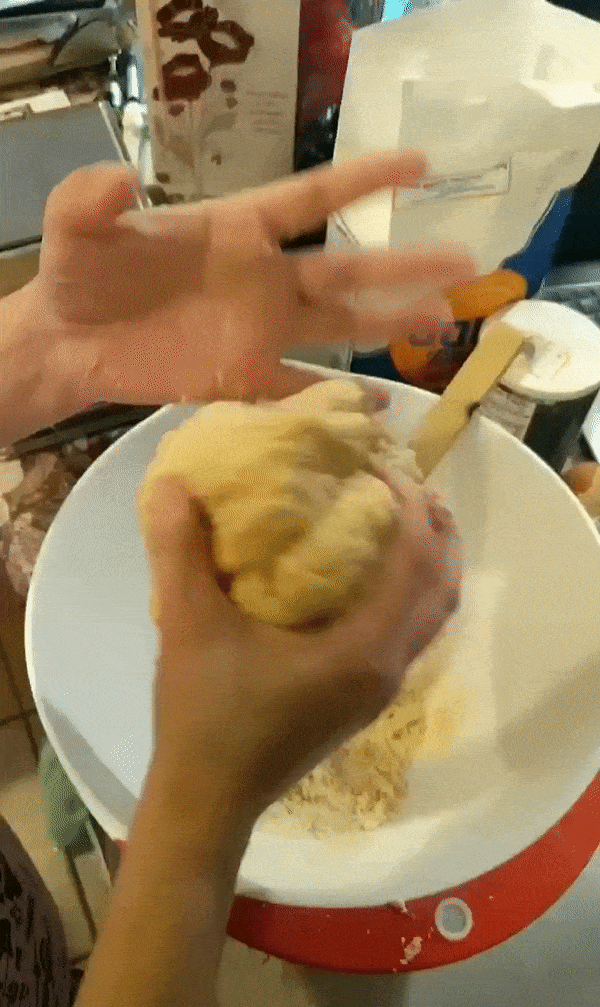
You'll want to knead the dough until it's smooth and has an elastic-like consistency. Add between a teaspoon and a tablespoon of water as needed until you get it to that point. You should be able to stretch it quite a bit without breaking a piece off.
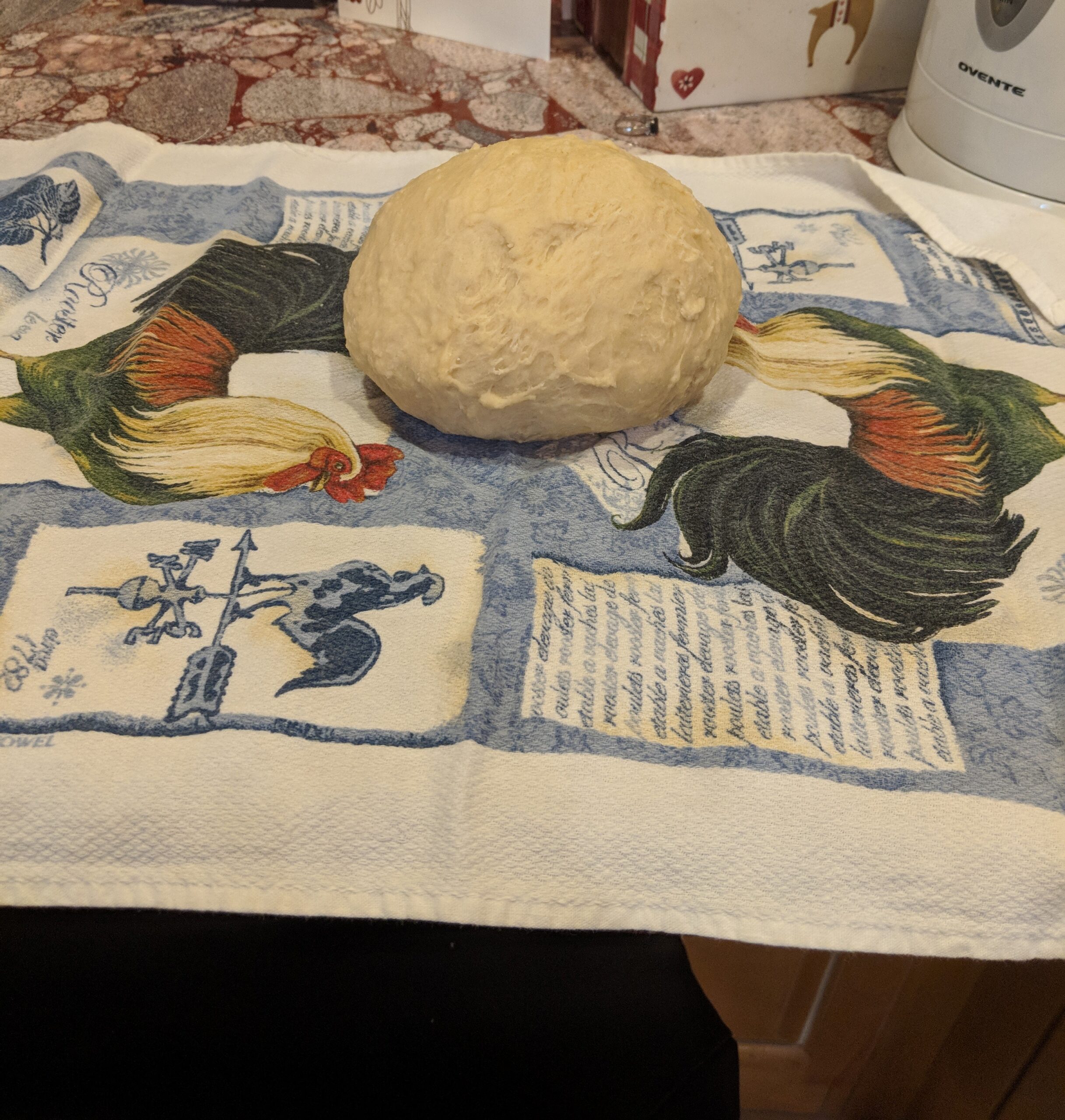
Once you're satisfied with the consistency of the dough, wrap it in a lint-free towel. Make sure it's covered, and set it aside for 30 minutes.
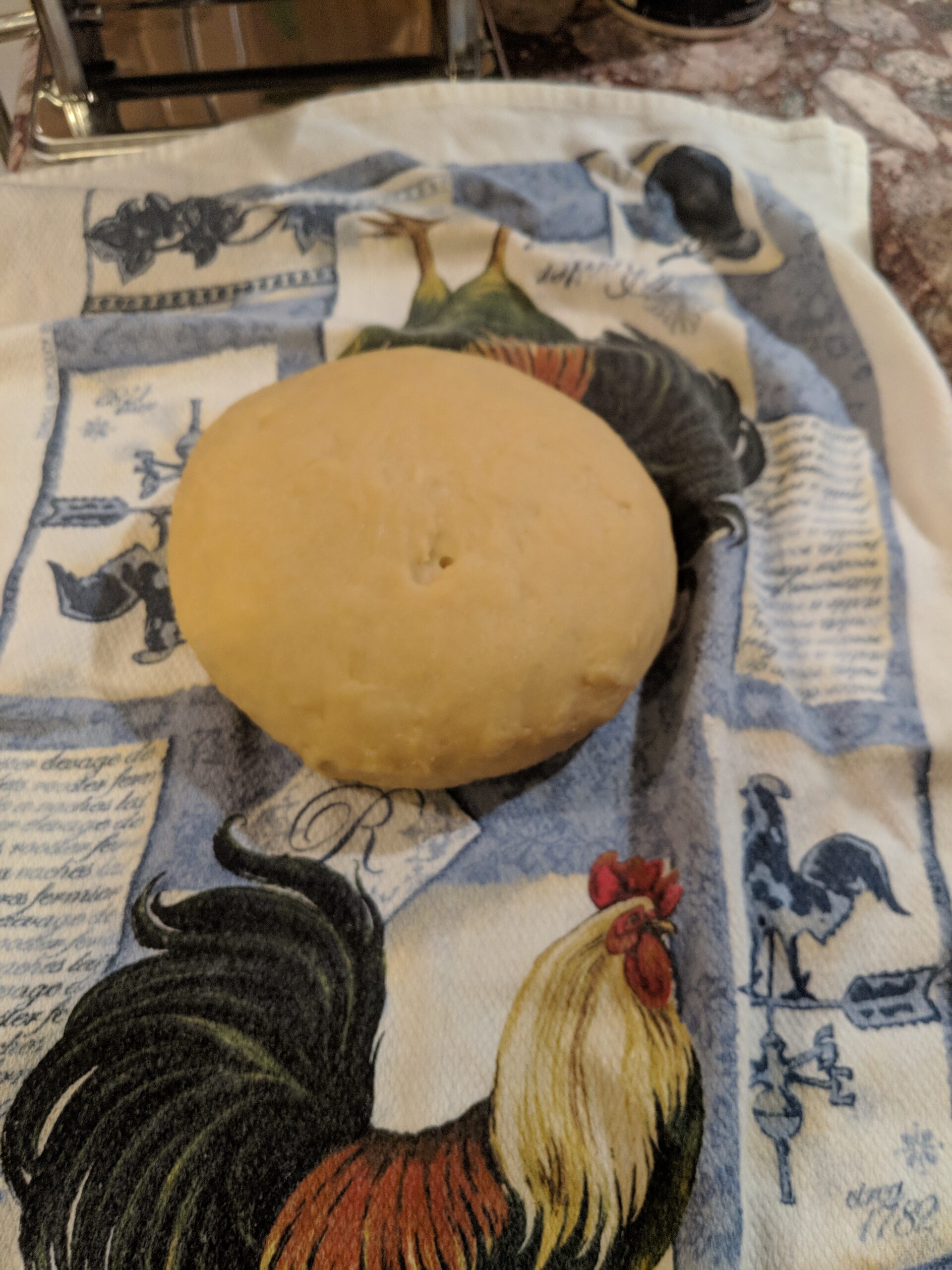
Once you come back to your dough, you'll see that it's changed. It will have more of that classic, almost yellowish pasta color. It will also smell delicious. Try to resist eating it raw.
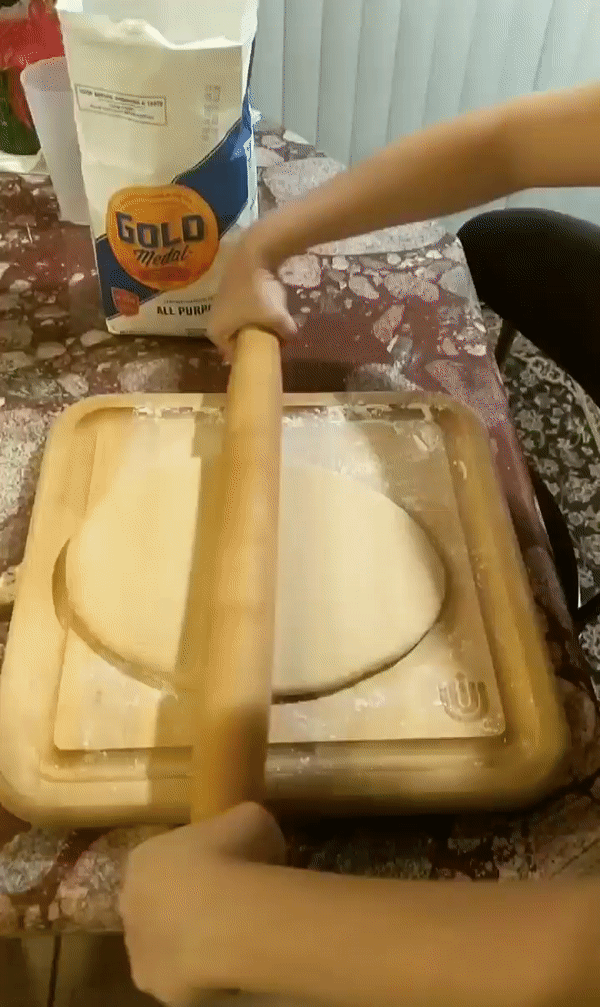
Divide your ball of dough into four pieces. Cover a rolling pin with flour, and roll each piece of dough until it's thin enough to fit through the No. 1 setting on your pasta maker.
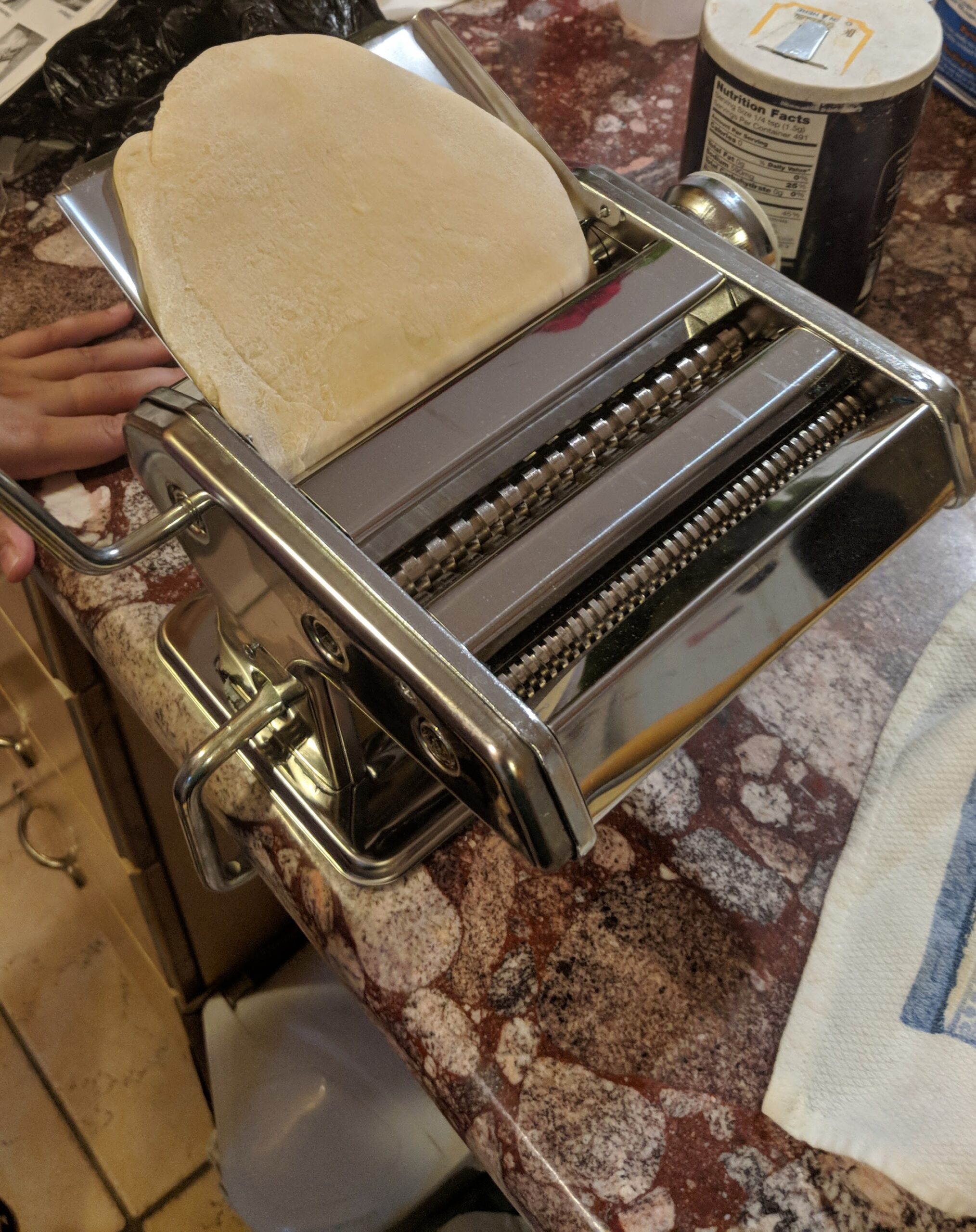
Once it's ready, feed the dough through the roller on your pasta maker. It will need to go through the No. 1 setting at least five times. By that point, it should look like a sheet, albeit an oblong one.
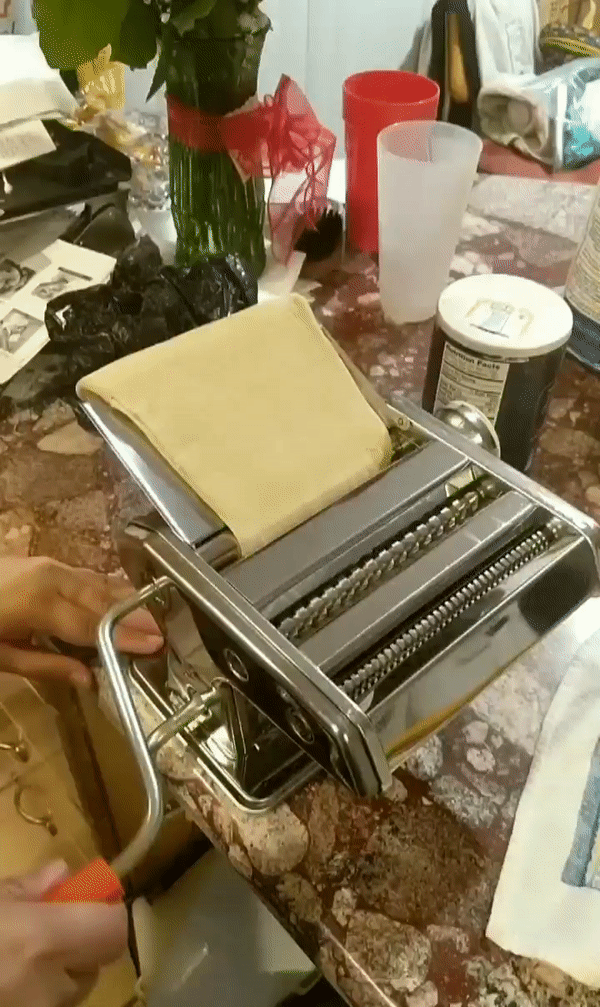
Switch the pasta machine to the No. 2 setting, and put the dough through two to three times. Once that's done, put it through the No. 3 setting once or twice.
Also, try not to drool into the dough, because by now it will smell mouthwateringly good.
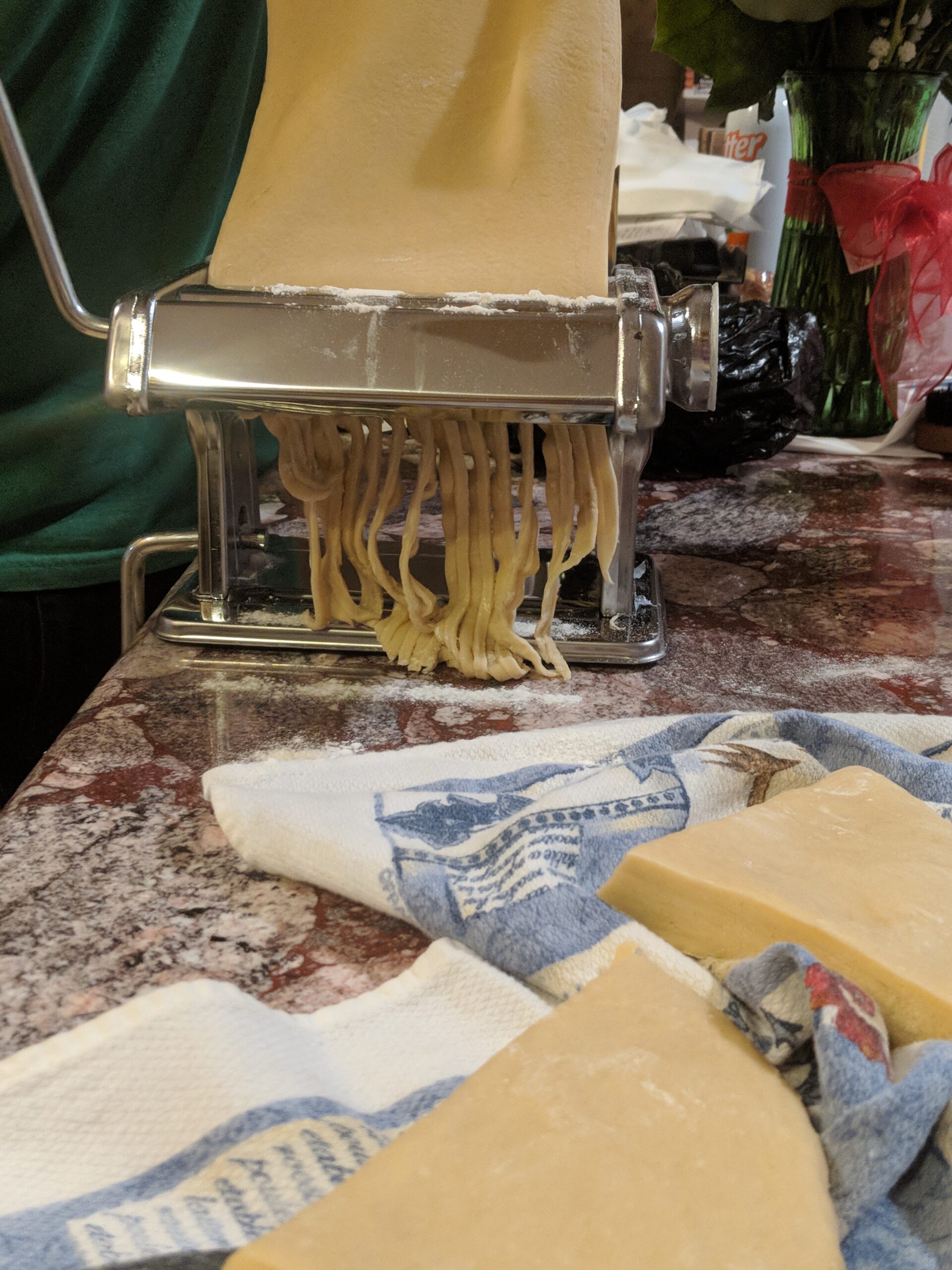
Now it's ready for cutting! The pasta machine I have has both a fettuccine and a linguine setting. For the purpose of this experiment, I went with linguine.
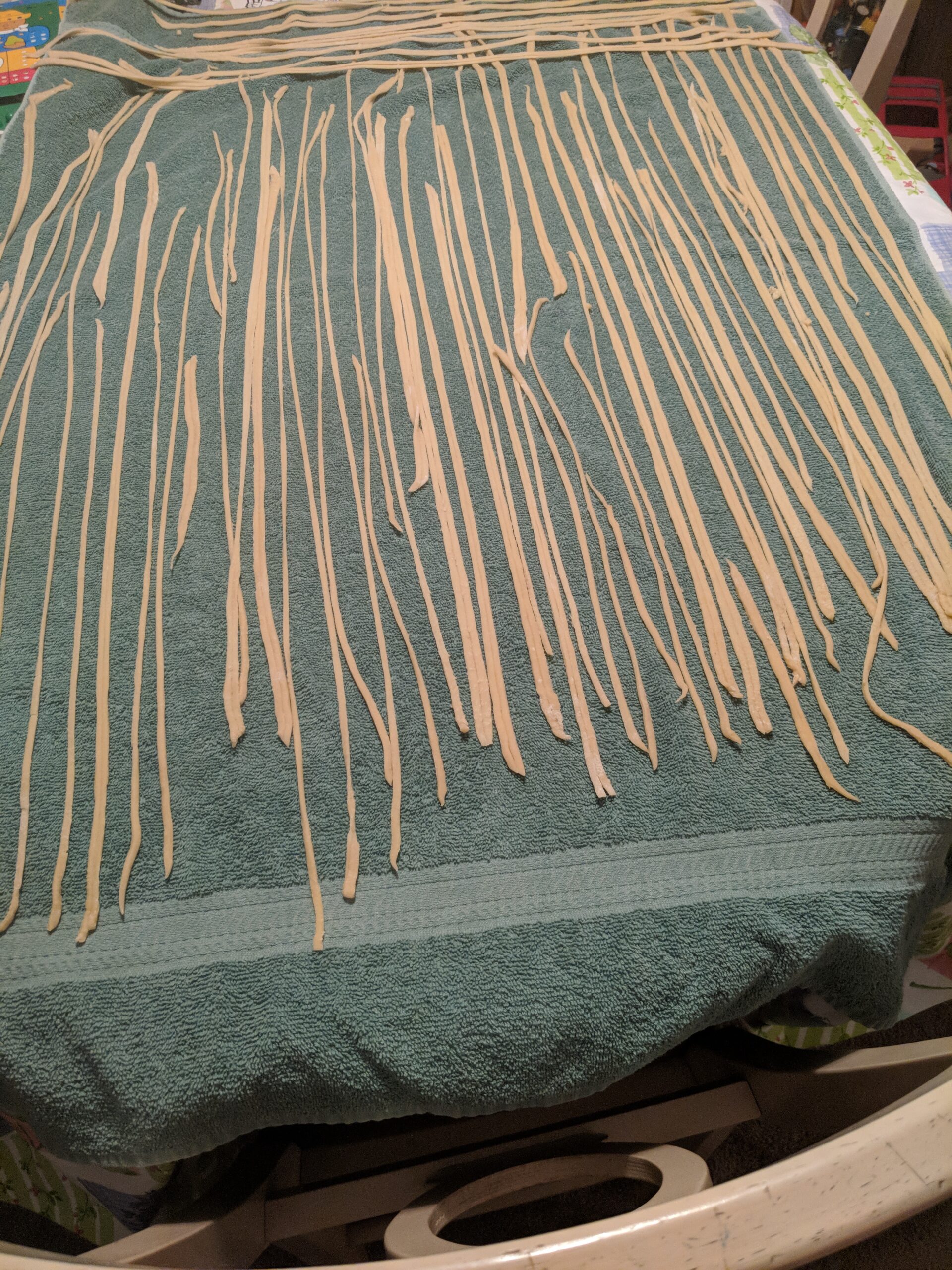
Since I didn't really have anywhere to hang my noodles, I laid them out on a towel on the table. You can let them dry for anywhere from two to 24 hours before cooking them.

Finally, it was time to cook my beautiful noodles into something delicious.
I was excited to see how my fresh pasta would turn out. There were so many possibilities, I spent the whole night that they were drying running recipe ideas by my boyfriend. The next morning, when I looked at the dry noodles, it came to me: I wanted a meat sauce.
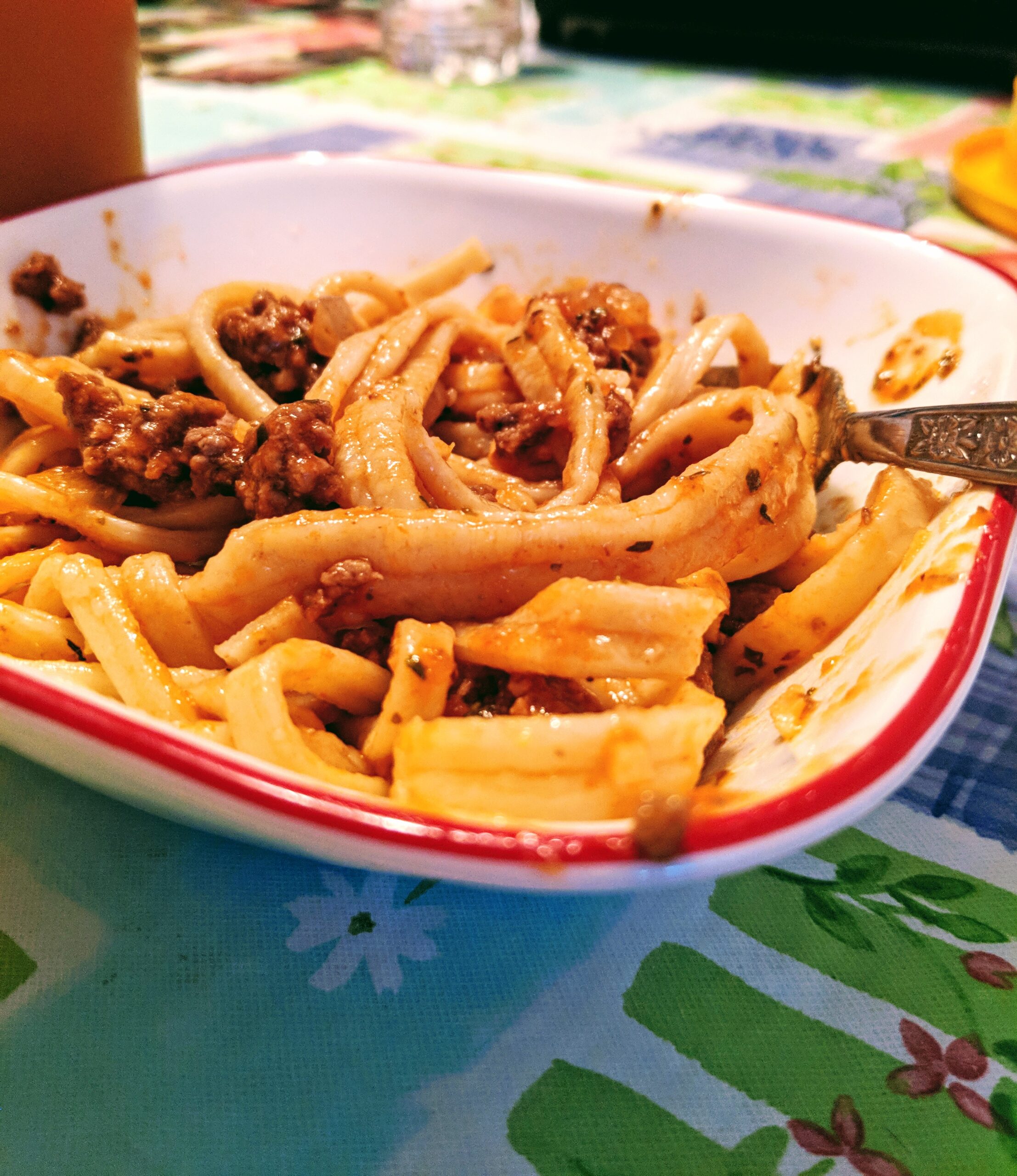
The finished result was scrumptious! The cooked noodles definitely came out a little thicker than store-bought pasta, but I personally enjoyed it.
I was beyond relieved that my most recent pasta-making experience was so much better than my first attempt. I was also pleasantly surprised by the fact that at-home pasta machines are fairly inexpensive.
I snagged one from Amazon for just $30.99. I wasn't even done eating before I was planning my next rendezvous with the pasta maker! What made it even better was that my whole family wasn't just on board but truly enthused. And I can't ask for anything more than that.




